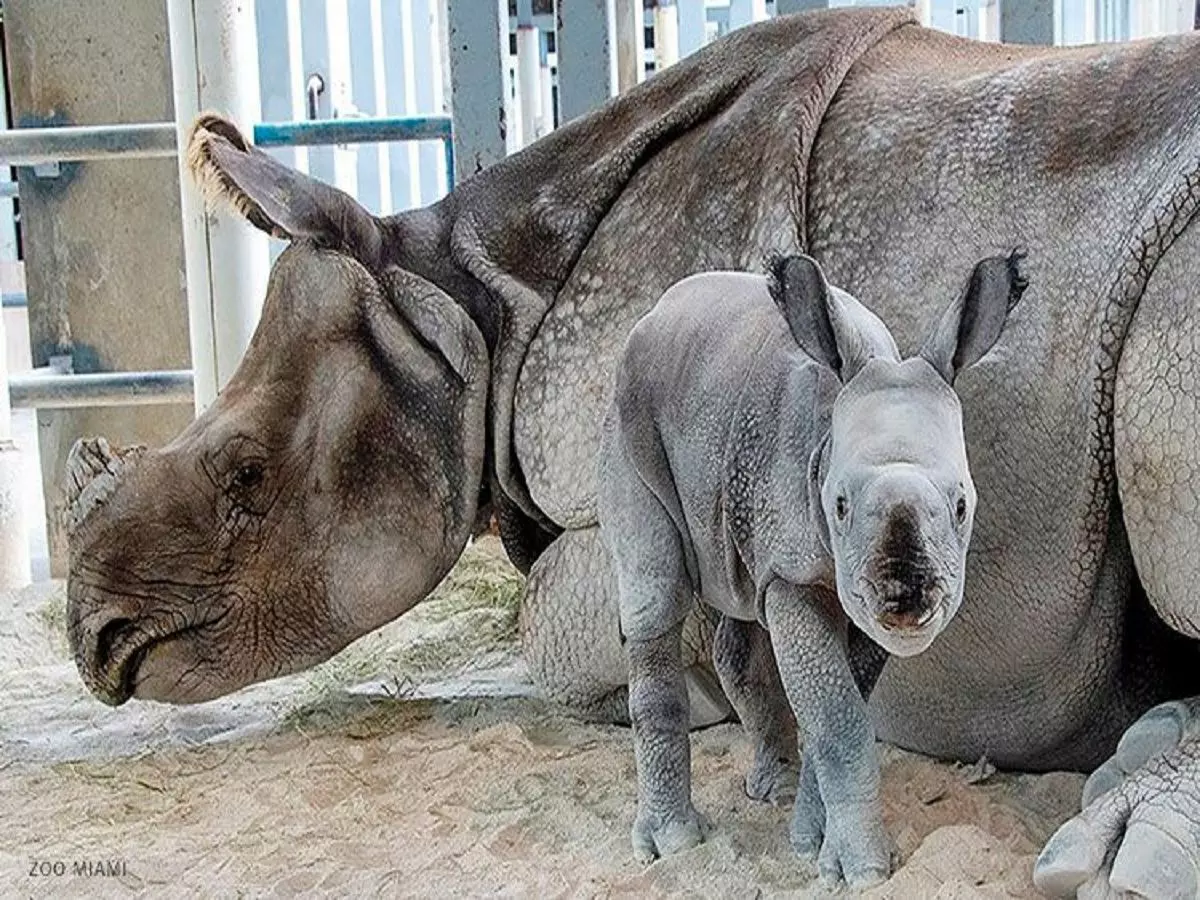Huge Win: Zoo Miami Celebrates Historic Birth Of Indian Rhino Born By Artificial Insemination
A rare baby rhino was born a result of induced ovulation and artificial insemination at Zoo Miami around 12:30am on one lucky Tuesday. The newborn came from Akuti a 7-year-old greater one-horned Indian rhinoceros. The baby doesn&rsquot have a name yet but is doing totally fine. Vets will check in on the baby and report more about its health soon.

Going by the latest historic development, Science is clearly the answer when it comes to conservation. A rare baby rhino was born a result of induced ovulation and artificial insemination at Zoo Miami around 12:30am on one lucky Tuesday. The gender is still unknown though.
Yes, history has been made: this is the first successful birth by artificial insemination.

The newborn came from Akuti, a 7-year-old greater one-horned Indian rhinoceros. The baby doesn¡¯t have a name yet but is doing totally fine. Vets will check in on the baby and report more about its health soon.
"This will be performed when the staff feels that it can safely separate the infant from its very protective mother for the few minutes that the exam will take," the zoo said. "It is critical that the mother and newborn are able to establish a bond, which can sometimes be a challenge for first-time mothers."
This particular species is heavily poached for its horn so it is a big deal for conservation. Merely 3500 rhinos are left in the world says the International Rhino Foundation.

Twitter/Zoo Miami
SEZARC works with several zoos and aquariums in the United States to help increase the populations of rare species through reproductive science.
Only one calf is born in every two to three years because of the gestation period of 15-16 months.
Yesterday, after an over 15 month pregnancy, ¡°Akuti,¡± a 7 year old Greater One Horned Indian Rhinoceros, gave birth at approximately 12:30am! This is only the second successful birth of this very rare species in the zoo¡¯s history.
¡ª Zoo Miami (@zoomiami) April 24, 2019
Video: Ron @RonMagill pic.twitter.com/jc833YgzvU
Both mother and 18-year-old father, Suru, were born at the San Diego Zoo Safari Park. Akuti, which means "Princess" in Hindi, arrived at the zoo in Miami in 2016. Suru, which means "A Start" in Bengali, joined in 2003.
Many unsuccessful attempts later, a special team of experts from the South East Zoo Alliance for Reproduction and Conservation, or SEZARC, along with Dr. Monica Stoops from the Cincinnati Zoo, started the process of artificially inseminating Akuti in January 2018.

Twitter/Zoo Miami
The zoo also said that "This very rare birth is not only significant for Zoo Miami, but it is also incredibly important to the international efforts to maintain a healthy population under human care of this highly vulnerable species throughout the world."
The pictures are out on social media and they are adorable.
